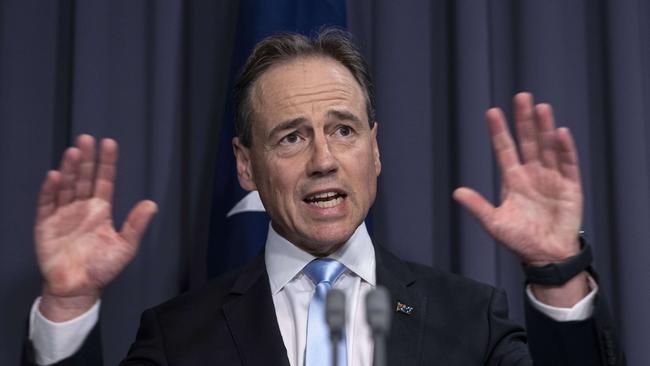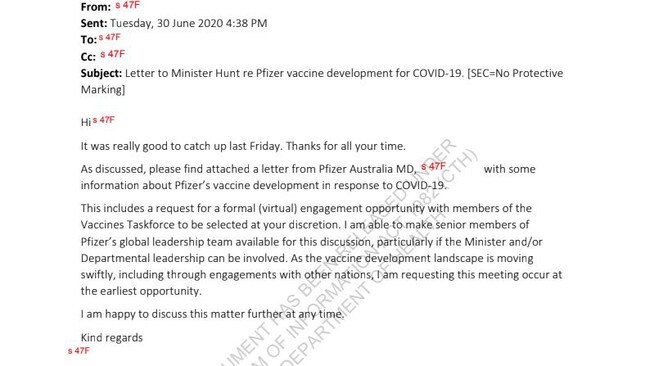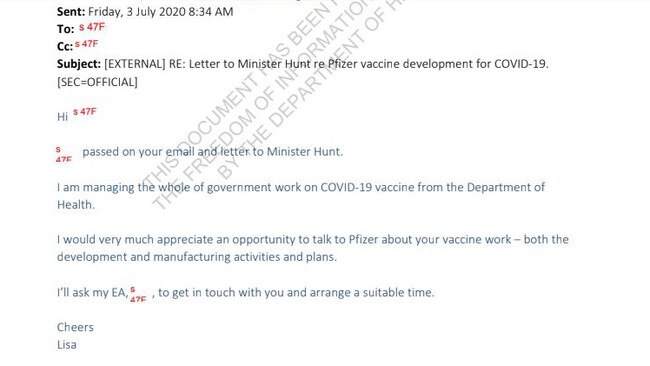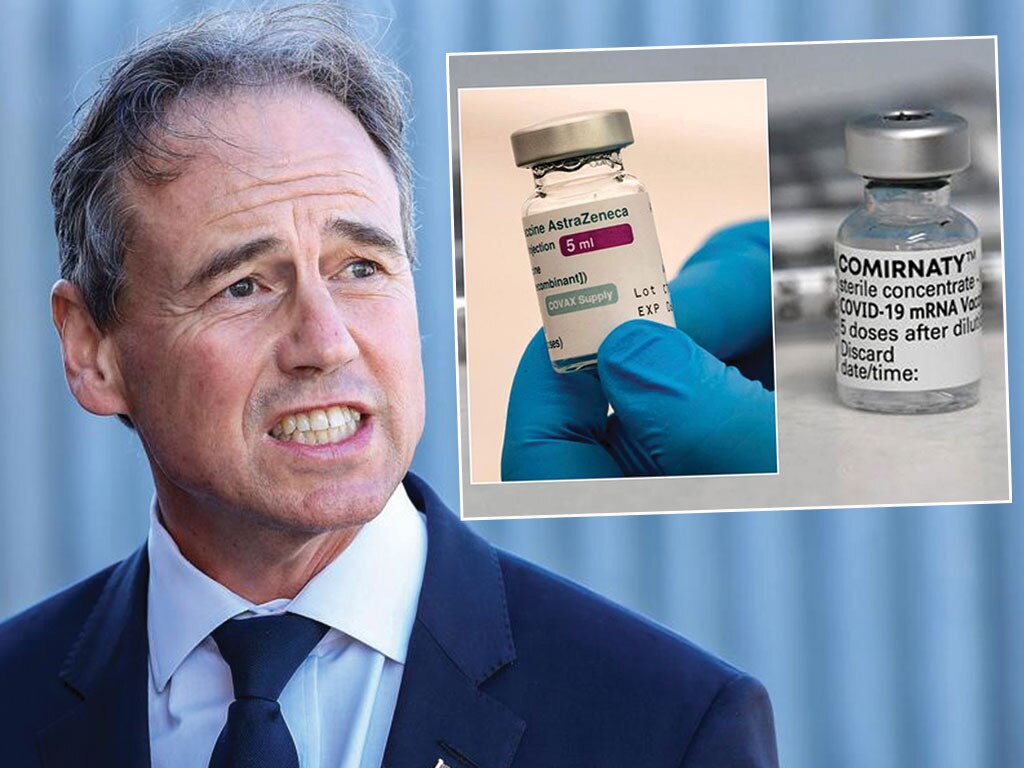Bureaucrats ‘dragged feet on Pfizer’
Scott Morrison’s bureaucrats knocked back meetings with global executives from Pfizer last year because of concerns about signing a confidentiality agreement.

Scott Morrison’s bureaucrats knocked back meetings with global executives from Pfizer last year because of concerns about signing a confidentiality agreement, in a move that delayed Australia securing the crucial vaccine while supply deals were struck with other nations.
Labor described the revelations as proof that the Morrison government deliberately delayed striking a vaccine deal with Pfizer, after releasing emails between the two parties obtained through Freedom of Information requests.
Labor said the emails showed that a representative of Health Minister Greg Hunt did not meet with Pfizer until August 4, despite being personally asked for a meeting by the company’s Australia and New Zealand managing director, Anne Harris, in a letter attached to an email sent on June 30.
“We have the potential to supply millions of vaccine doses by the end of 2020 … then rapidly scale up to produce hundreds of millions of doses in 2021,” Ms Harris wrote.
Three days later, on July 3, Department of Health first assistant secretary Lisa Schofield informed Pfizer that Mr Hunt would not be attending the meeting.
“Passed your email and letter to Minister Hunt,” Ms Schofield wrote in the email.
“I would very much appreciate an opportunity to talk to Pfizer about your vaccine work - both the development and the manufacturing activities and plans.
“I’ll ask my EA ... to get in touch with you and arrange a suitable time.”
An employee from Pfizer responded to Ms Schofield asking the department to sign a confidential disclosure agreement ahead of the meeting, which would allow “several senior global Pfizer colleagues on the call to be able to provide the detail you may be seeking on a range of issues”.
“Alternatively, we are happy to treat this Friday as just an exploratory/introductory meeting without the CDA, in which case it will be limited to my Australian colleagues,” the email said.

The next day, on July 7, a Pfizer employee sent another email to Ms Schofield saying the “strong recommendation” is for a 90-minute meeting with global executives once the CDA was signed.
Ms Schofield opted to meet with just the local Pfizer team because “it is not usual practice for the commonwealth to sign such (CDA) documents”.
“I’d like to propose we keep the slot on Friday morning and have the introductory/exploratory discussion you suggest,” Ms Schofield wrote. “We can always line up subsequent ones as needed.”
Health department notes from the July 10 meeting say Pfizer wanted to “have discussions move as quickly as possible” and could deploy vaccines at “unprecedented speed”.
Pfizer also wanted to know the timeline for the doses.
On July 23, a representative from Pfizer emailed Ms Schofield to tell her the UK and US had already signed a vaccine supply deal with the company.
Australia was yet to agree to a CDA to hold a detailed meeting with global Pfizer executives.
“It seems that both of our legal representatives are close to resolving the few outstanding issues with the CDA. I look forward to scheduling another meeting with you to progress our discussions once this is signed,” the email says.
Australia did not finalise a deal to secure Pfizer vaccines until November, buying just 10 million doses.

The first batch of Pfizer vaccines did not arrive in Australia until February this year.
The Morrison government has been forced to negotiate vaccine swap deals with Poland, Singapore and Britain to make up for the supply shortfall.
Opposition health spokesman Mark Butler said the government took a “deliberate wait-and-see approach to vaccine deals”.
“While other countries were signing Pfizer deals, our government couldn’t even be bothered arranging a meeting,” Mr Butler said.
“Australians are paying the price of Scott Morrison’s incompetence; we have more people in lockdown and fewer people fully vaccinated than any other developed country.”
Mr Hunt said the “ALP claim is false and has been refuted with facts on multiple occasions by multiple parties”.
“The department began working with Pfizer shortly after the pandemic began,” Mr Hunt said.
“There had been constant informal engagements prior to that time, as the email trail shows.
“Pfizer advised, however, they were not allowed to commence formal negotiations at that time.
“On 30 June, Pfizer wrote to the minister to commence formal discussions.
“The Australian government moved immediately to formal negotiations, with the first step being to agree and negotiate a confidentially disclosure agreement.”
Mr Hunt said the reference from Pfizer to “supply millions of vaccine doses by the end of 2020” referred to the company’s global supply. “As Pfizer has made clear, no earlier doses were available to Australia,” he said.
“The Australian government entered into an advanced purchase agreement (APA) with Pfizer for the purchase of their Covid-19 vaccine as soon as possible, whilst ensuring safe and effective vaccines for Australians based on the medical advice.”







To join the conversation, please log in. Don't have an account? Register
Join the conversation, you are commenting as Logout